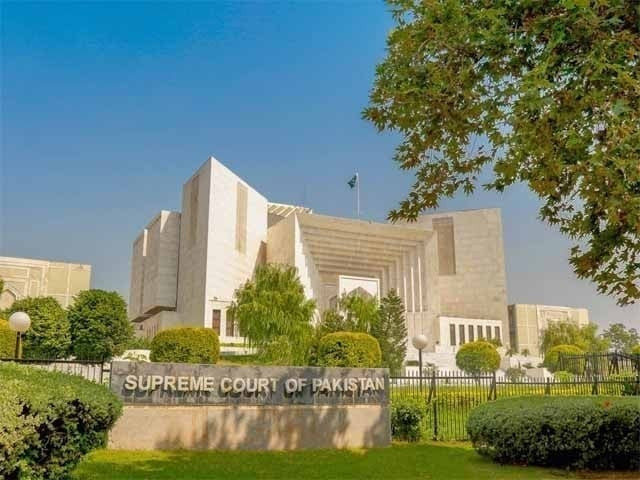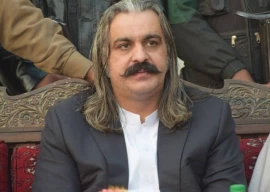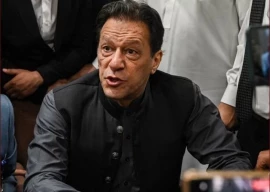
An official voice from the Supreme Court of Pakistan has clarified that off-the-record comments made by Chief Justice Qazi Faez Isa, during a conversation with journalists, were "needlessly and inaccurately" reported, causing unnecessary sensationalism.
In a statement issued by Muhammad Mushtaq Ahmed, the secretary to the CJP, it was clarified that Justice Isa had simply refused to accept an extension through person-specific legislation. However, the SC statement did not specify whether he would retire late in October. The CJP also did not drop the slightest hint on his retirement plans.
In a statement issued by the court on Tuesday, it was explained that the conversation took place after the commencement of the new judicial year when some journalists asked CJ Isa about the potential extension of his tenure.
Justice Isa replied that several months earlier, the law minister had informed him that the government was considering making the chief justice's term a fixed three-year post. Justice Isa informed the journalists that he told the law minister that if the proposal was individual specific, and if enacted, it would not be something he would accept, the statement said.
The SC statement further added that during the meeting, which was also attended by the attorney general of Pakistan and the senior puisne judge, the law minister suggested incorporating the parliamentary committee into the judicial commission for judges' appointments.
To this, Justice Isa responded that it was parliament's prerogative; but hoped that those in opposition to the government would not be excluded.
Addressing a follow-up question over a statement by Rana Sanaullah, the chief justice clarified that he had not met the PML-N leader and was unaware of what he may have said. The chief justice added that if there were any questions, they should be addressed directly to Sanaullah.
The Supreme Court expressed regret over the misreporting of the off-the-record conversation, stating, "An off-the-record conversation was needlessly, and in most instances, inaccurately broadcast and published."
The court emphasised that giving undue importance to individuals remarks detracts from the focus on institutional matters which serve the people.
On the topic of increasing the number of judges, Justice Isa said filling the existing vacant positions must take precedence first. The court observed that unnecessary sensationalism detracts from the importance of institutions and their role in serving the people.
It has been learnt that the government has made all preparations to bring a judicial package through a constitutional amendment. This week is crucial in this regard.
However, lawyers are concerned over how the government will reach the required numbers in both houses of parliament. Since the government came into being, a committee has been working on judicial reforms. A senior government official tells The Express Tribune that Justice Syed Mansoor Ali Shah is also aware of the government's planned judicial package.
At the end of April this year, it was decided that instead of fixing the tenure of the CJP, the retirement age of all judges should be extended for three years. However, the government was disappointed by the SC's decision to suspend the Election Commission of Pakistan (ECP) notification to allocate 77 reserved seats of the national and provincial assemblies to other parties after it refused to give them to the Sunni Itehad Council (SIC).
The bench, in this case, was led by Justice Syed Mansoor Ali Shah. After a May 6 interim order, the government lost two-thirds majority in parliament. Soon after this interim order, CJP Isa had conveyed the government that he was not interested in an extension and would retire on October 25. Senior government functionaries were unhappy on this announcement.
Later, a three-judge committee, on May 30, discussed the formation of a larger bench in the reserved seats case.
During the meeting, there was initial talk of excluding judges who might be caught in a conflict of interest if the reserved seats remained with the government, potentially paving the way for constitutional amendments affecting their tenure. The idea was abandoned in favour of forming a full court. Justice Munib Akhtar dissented, preferring a seven-member bench based on seniority, excluding those who might need to recuse themselves.
Meanwhile, the government was more disappointed with the July 12 majority order in which it was held that reserved seats should be allocated to PTI.
CJP Isa was in the minority in the reserved seats case. Although the present government functionality was not affected through the July 12 order, the majority of eight judges faced immense criticism. A visible rift was subsequently witnessed among senior SC judges. Four days after the short order, the PML-N filed a review petition and the same was included in the meeting of the committee on July 18.
Two judges rejected CJP Isa's opinion about the early fixation of PML-N's review petition against the July 12 order. CJP Isa, being a member of the committee, issued a strong dissenting opinion about non fixation of the review petition.
In the meanwhile, the Election Commission of Pakistan (ECP) stopped the implementation of the July 12 order and did not allocate reserved seats to PTI. The commission approached majority judges, seeking guidance about the implementation of short the order. However, the SC is yet to respond the ECP.
All eyes are on the SC's detailed judgement in the reserved seats case. It is likely that this will be announced in the next seven days.
After the detailed judgement, review petitions will be listed for hearing. The government will be hoping that majority judges accept the opinion given by Justice Jamal Khan Mandokhail in the case.


1731916090-0/sabrina-(3)1731916090-0-165x106.webp)


1732020599-0/BeFunky-collage-(73)1732020599-0-165x106.webp)




1724319076-0/Untitled-design-(5)1724319076-0-270x192.webp)







COMMENTS
Comments are moderated and generally will be posted if they are on-topic and not abusive.
For more information, please see our Comments FAQ